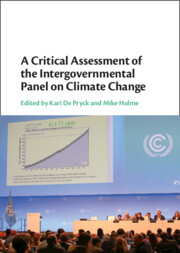Book contents
- A Critical Assessment of the Intergovernmental Panel on Climate Change
- A Critical Assessment of the Intergovernmental Panel on Climate Change
- Copyright page
- Contents
- Figures
- Tables
- Boxes
- Contributors
- Foreword
- Acknowledgements
- Abbreviations
- 1 Why the Need for This Book?
- Part I Governance
- Part II Participation
- Part III Knowledges
- Part IV Processes
- Part V Influence
- Glossary
- Bibliography
- Index
- References
Bibliography
Published online by Cambridge University Press: 08 December 2022
- A Critical Assessment of the Intergovernmental Panel on Climate Change
- A Critical Assessment of the Intergovernmental Panel on Climate Change
- Copyright page
- Contents
- Figures
- Tables
- Boxes
- Contributors
- Foreword
- Acknowledgements
- Abbreviations
- 1 Why the Need for This Book?
- Part I Governance
- Part II Participation
- Part III Knowledges
- Part IV Processes
- Part V Influence
- Glossary
- Bibliography
- Index
- References
Summary
- Type
- Chapter
- Information
- Publisher: Cambridge University PressPrint publication year: 2022
- Creative Commons
- This content is Open Access and distributed under the terms of the Creative Commons Attribution licence CC-BY-NC-ND 4.0 https://creativecommons.org/cclicenses/
References
- 1
- Cited by

